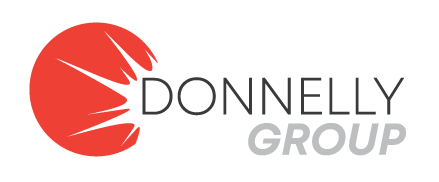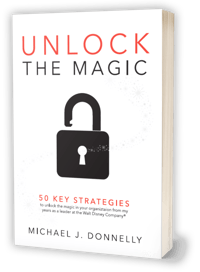You've just wrapped up an engaging and informative training session...
The participants are buzzing with new knowledge and enthusiasm (probably because you followed our blueprints for planning an effective training program and implementing it intentionally).
But your job isn't over yet. What you do next differentiates a one-off event from a transformative learning experience that drives long-term organizational growth. In the post-training phase, you'll cement learning and set the stage for continuous improvement.

The Ultimate Training Blueprint: Post-training
-
Recap your main points, going beyond theories and practices to make training feel immediately relevant and valuable.
-
Recognition is a powerful motivator that can boost morale, increase learning retention, and encourage future participation in training programs.
-
To encourage retention and inspire long-term action, plan to reinforce learning with follow-up sessions, mentoring programs, or opportunities for employees to apply their new skills on the job.
-
When students engage in providing feedback, it enhances both learning and results.
As your in-person employee training program draws to a close, end on a high note that motivates ongoing real-world application.
Ensure your learners leave the room knowing exactly how they can drive change in their daily work — and remember that even your most inspired teams will need the proper tools to make an impact.
Post-training Event Framework:
1. Close with a recap
-
Revisit the main objectives of the training, reminding participants why they were there and what they set out to achieve.
Dedicate the last section of your training materials to a comprehensive recap of the training session. This isn't just a quick summary — it's a strategic visualizer you use to highlight your most crucial points and insights.
Encourage participants to share their own key takeaways and connect the dots between the training content and real-world applications. Provide concrete examples of how participants can use their new knowledge or skills in their daily work. This bridges the gap between theory and practice, making the training feel immediately relevant and valuable.
2. Recognize and reward
-
Plan ways you will recognize the individuals who participated in the course.
Next, it's time to celebrate the effort and engagement of your participants. Little things matter most when recognizing your people — effort goes a long way in fostering loyalty and excellence.
Start by thanking everyone for their time, attention, and contributions. Consider presenting certificates of completion or achievement that serve as tangible proof of their learning efforts, which they can add to their portfolios or share with their managers.
For more extensive training programs, you might consider awards for innovative ideas or the best representation of the company mission. These could be accompanied by small prizes or privileges, like a lunch with a senior leader or company shoutouts.
Here are some ways we like to reward and recognize learners:
- Present graduates of the program with a "Culture Champion" lapel pin or printed certificates. (Bonus: Arm your leaders with extra pins and certificates for future training sessions!)
- Create posters with team members displaying the right behaviors.
- Give credit to the employees who contributed new ideas, suggestions, and improvements to your processes and programs in your corporate communications.
3. Introduce follow-up actions and ongoing education opportunities
-
How will you provide a clear roadmap for learning and application after participants leave the room?
I'd argue that the most important part of planning an employee training program is outlining the steps you take after the event ends. Before you send off the team, think about how you'll help them retain what they've learned and apply it:
- What continuing education will you provide them, how will it be delivered, and when will they receive it?
- What are your longer-term measurements of learner retention and training ROI (e.g., pre- and post-testing, surveys, behavioral measures, results, etc.)?
- Will you administer this training to additional groups or host an updated version at certain intervals?
Start by defining specific action steps participants should take in the coming days and weeks. These could include implementing a new process, practicing a skill, or sharing learnings with their team. Be as concrete as possible — vague suggestions are quickly forgotten.
At the very least, remember to give participants access to the training materials used during the workshop so they can reference them in their daily work.
Depending on the topic or initiative, you might introduce additional tools or resources to support ongoing learning, such as recommended reading lists or follow-up training opportunities that build on what they've just learned.

4. Ask for feedback
-
Giving immediate feedback about your workshop helps students reflect and retain.
Your participants have committed to continuous improvement, and so should you. Allow students to give feedback on the workshop, letting them know that their views on everything from pre-training communication, the training environment, and post-training support is fair game.
This helps learners reflect on, understand, and retain the content they learned, and gives you clear guidance on how you can improve your delivery.
Some useful methods for gathering feedback include surveys, testing, and talking with learners directly. If you do a post-workshop evaluation survey, have them complete it before leaving the room while their experience is fresh.
More importantly, make it clear how this feedback will be used. Participants are more likely to provide thoughtful responses if they know their input will drive real improvements.
Setting Up Your Team for Long-term Success
Remember, effective organizational training isn't a one-time event, but an ongoing process of learning, application, and improvement. This helps create an inspired service culture with employees who can adapt and overcome.
As you prepare to host an employee training or workshop, I urge you to download and follow our blueprint for success. Fair warning: this blueprint will lead to greater innovation and improved business results.
We want to know what you're working on next. If you need help putting this blueprint to work, send us a message.
Want to be more EFFECTIVE? Follow us on the journey:
- Follow us on TWITTER: @DonnellyEffect
- Follow us on LINKEDIN: Donnelly Effect & Mike Donnelly
- SPARKS! Blog: Subscribe on the upper right hand side of this page =)
Mike Donnelly is a recognized expert, keynote speaker, facilitator and consultant in customer service and leadership development. Leveraging 20+ years of experience from The Walt Disney Company, he and his team help destination location clients and clients in various customer-facing industries create customer loyalty to achieve positive business results. Learn more at www.DonnellyEffect.com.




